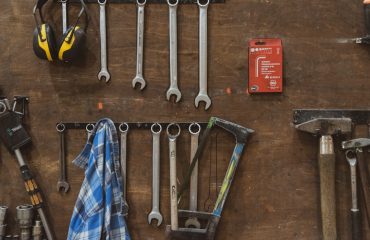The machinery manufacturing industry relies heavily on a robust and reliable steel supply chain. From the smallest component to the largest frame, steel forms the backbone of countless machines. Securing the right type and quantity of steel at the right price is crucial for profitability, on-time delivery, and maintaining product quality. This post delves into the complexities of steel supply for machinery manufacturing, exploring key aspects to help manufacturers optimize their operations.
1. Selecting the Right Steel Grade for Your Machinery
Choosing the appropriate steel grade is paramount. The performance and lifespan of your machinery directly depend on the steel’s properties. Factors to consider include:
- Strength: Tensile strength, yield strength, and fatigue strength determine the machine’s ability to withstand stress and load.
- Hardness: Hardness influences wear resistance and the ability to resist deformation.
- Ductility: This property dictates the steel’s ability to be formed and shaped without fracturing.
- Corrosion Resistance: Depending on the operating environment, corrosion-resistant steels (stainless steels) might be necessary.
- Weldability: If welding is involved in the manufacturing process, the steel’s weldability must be considered.
- Machinability: The ease with which the steel can be machined influences production costs and efficiency.
- Supplier Diversification: Reducing reliance on a single supplier mitigates risks associated with supply disruptions or price fluctuations.
- Long-Term Contracts: Negotiating long-term contracts with key suppliers can secure favorable pricing and consistent supply.
- Supplier Performance Evaluation: Regularly assessing supplier performance based on factors like on-time delivery, quality, and responsiveness ensures consistent quality and reliability.
- Geographic Proximity: Locating suppliers closer to the manufacturing facility can reduce transportation costs and lead times.
- Ethical Sourcing: Considering the environmental and social impact of steel production is increasingly important for many manufacturers and their customers.
- Incoming Inspection: Thoroughly inspecting incoming steel shipments to verify that they meet specifications is the first line of defense against defects.
- Material Testing: Conducting various tests, such as tensile testing, hardness testing, and chemical analysis, ensures that the steel meets the required standards.
- Traceability: Maintaining complete traceability of the steel from its origin to the finished product allows for rapid identification and resolution of any quality issues.
- Statistical Process Control (SPC): Using SPC techniques helps monitor and control the manufacturing process to minimize variations and defects.
- Certification: Working with suppliers who hold relevant certifications (e.g., ISO 9001) provides assurance of their quality management system.
- Supply Disruptions: Natural disasters, geopolitical instability, and pandemics can disrupt steel production and transportation.
- Price Volatility: Fluctuations in steel prices can significantly impact profitability.
- Quality Issues: Receiving defective steel can lead to production delays, rework, and increased costs.
- Lead Time Variations: Inconsistent lead times can disrupt production schedules and negatively impact delivery performance.
- Logistics Challenges: Transportation delays and logistical bottlenecks can cause significant disruptions.
- Sustainable Steel Production: Demand for steel produced with lower carbon emissions is growing, pushing the industry towards more sustainable practices.
- Advanced Steel Alloys: Development of new steel alloys with enhanced properties, such as higher strength-to-weight ratios and improved corrosion resistance, is driving innovation.
- Digitalization and Automation: Digital technologies are transforming the steel supply chain, improving efficiency and traceability.
- Additive Manufacturing: 3D printing with metal powders is gaining traction, offering opportunities for customized and complex parts.
- Circular Economy: Increased focus on recycling and reusing steel to reduce waste and environmental impact.
Understanding these properties and aligning them with the specific application of the machinery is critical for success. Consulting with metallurgical engineers can provide valuable insights into the optimal steel grade selection.
2. Strategic Sourcing and Supplier Relationships
Establishing strong relationships with reliable steel suppliers is crucial for a stable supply chain. This involves:
A proactive approach to supplier management can significantly improve the efficiency and resilience of the steel supply chain.
3. Ensuring Steel Quality through Rigorous Testing and Control
Maintaining consistent steel quality is non-negotiable. Implementing a robust quality control system is essential, including:
A comprehensive quality control system minimizes waste, reduces rework, and enhances the reliability of the final product.
4. Mitigating Risks in the Steel Supply Chain
The steel supply chain is subject to various risks, including:
Developing strategies to mitigate these risks, such as diversification, inventory management, and risk assessment, is crucial for maintaining a stable and resilient supply chain.
5. Future Trends in Steel Supply for Machinery Manufacturing
The steel industry is constantly evolving, and manufacturers need to adapt to stay competitive. Key trends include:
Staying informed about these trends and adapting accordingly is essential for machinery manufacturers to remain competitive in the long term.
By understanding and effectively managing the complexities of steel supply, machinery manufacturers can ensure the production of high-quality, reliable machines, while also optimizing costs and mitigating risks. A proactive and strategic approach to steel supply chain management is essential for success in this dynamic industry.
Tags: Steel Supply Chain, Machinery Manufacturing, Steel Selection, Steel Sourcing, Steel Quality Control




